Have you been considering adopting an island dog? Perhaps you’ve seen those tear-jerking rescue videos and photos floating around social media. The star might be a mangy mutt persuaded out from a dumpster, likely on the verge of death, but with a look in his eyes that melts your heart. A stoic volunteer then nurses him back to health, and in the final scenes he’s playing happily with other dogs and snuggling with his new family. Meanwhile, your face is leaking like bad plumbing and you’re wiping tears off your keyboard. It’s then that you think, I need to do that!
That’s fantastic! There are so many island dogs (also known as coconut retrievers, potcakes, boonies, or other names depending on your island) that come from horrendous backgrounds and all they want is a loving home. And there are too many breeders in this world pumping out puppies for a profit. You can make a difference on your island by choosing to adopt, not shop.
But what happens behind the scenes after these island dogs have found their forever homes? Once you get past the heart-melting story, you’ll probably come to find out that an adult dog that comes from an abusive, neglected background is bound to be carrying some emotional baggage. Like humans, dogs can develop issues and learned behaviors based on bad experiences – fear, anxiety, aggression, timidness. If you rescue a dog whose background you do not know, it is likely that some form of the aforementioned behaviors are bound to be hiding behind those chocolate-chip eyes.
The purpose of me sharing my story here is not to scare anyone away from adopting an island dog. Just like humans, dogs are individuals and no two personalities will be exactly the same. You may adopt the “perfect dog” and enjoy the next ten years of smooth sailing. Or you may have an experience more like mine. Regardless, the new dog you bring into your home will require your patience and empathy as he/she settles into his/her new life.
I’m one of those proud moms who saved a broken island dog. I love my dog. He’s a part of our “pack” now, but our relationship has been a torrid one. I can talk about it now with less emotion because he’s calmed down significantly. But there were days I wanted to wring his neck. And days when I wanted to open the gate and tell him to leave and never come back. And yes, there were even days where I felt like everyone would be put out of their misery if he were quickly and painlessly outed by a passing truck. Well, I never truly wished for that to happen, but trust me – dogs also have an amazing ability to push buttons you didn’t even know you had. I imagine my mother must have had similar moments with my sister and me. Moms sometimes admit there are times they want to quit the parenting job and so, there were moments where I was ready to quit my job as a dog mom. I say that in the past tense because everything is much more manageable in our household these days.
My older dog Barley has been through everything with me. She’s my adventure buddy, she flies on airplanes, rides on boats, and can pretty much handle any situation I throw at her. I was not prepared for a dog that would flip out at the sight of someone carrying a paddle board, or start barking at an unsteady drunk person. Or, god forbid, what would happen if we even so much as caught a glimpse of another dog from afar.

Jackson, the day he was confiscated from his previous owners by the Briland Animal Rescue
Our rescue dog, Jackson, came from a horrible background. This is not an uncommon situation here in The Bahamas where people’s level of respect for animals is depressingly low. There are plenty of potcakes (island mutts) that need good homes, so if you are any sort of a dog person with a big heart, you may end up with one, two… then six, if you’re not careful.
Jackson was tied up in someone’s backyard, neglected and most likely abused. He has two scars on top of his head that exactly mimic canine teeth marks, so I have deducted that he was likely bitten on top of his head by a fairly large dog while he was tied up. Luckily, he’s always seemed to have a fondness for most humans, especially children. But even to this day, an encounter with another dog is a whole other story.
The first time I realized that we were facing some challenges was when I went to meet a friend on the beach. She had watched my other dog Barley previously and was offering to watch the two dogs while we were going away, so she wanted to introduce herself to our newest member of the family. We decided it would be best to meet and go for a peaceful evening walk on the beach. The situation that ensued ended up being anything but peaceful.
She arrived with her dog, a sweet little Miniature Pinscher, and Jackson completely lost it. He started howling and lunging and making the worst wailing sounds you’ve ever heard. I did everything I could to try and simmer down the out-of-control situation. I tried holding him, I tried shutting his mouth, I tried soothing him, I tried scolding him. Nothing. My friend and her dog both looked at us with wide eyes without making a sound. He continued to make a scene that had the entire beach looking in our direction.
I called my husband and demanded that he come and pick us up. I couldn’t even fathom trying to walk back home with this heinous beast. When my husband arrived, I was shaking, and tears were streaming down my face. I put Jackson in the back of the van and didn’t even want to look at him. I was furious about his outburst. My husband didn’t understand why I got so worked up about a dog barking a bit. That was, until he witnessed him in full glory when we passed another dog on the beach on an evening soon after.
“Oh,” he said after the dust (or sand) had settled. “That’s pretty terrible.”
I came to realize that Jackson must have had a few run-ins with some pretty mean dogs. You could tell that his outbursts were out of pure fear. I later learned in Doggie Psychology 101 that this is known as “Fear Aggression.” I also learned that dogs develop a habit of barking at things because they think the thing will go away, and oftentimes it does. A dog barks at a person passing by and the person eventually disappears. In turn, the dog starts to believe that was only because he was doing such a good job at barking.
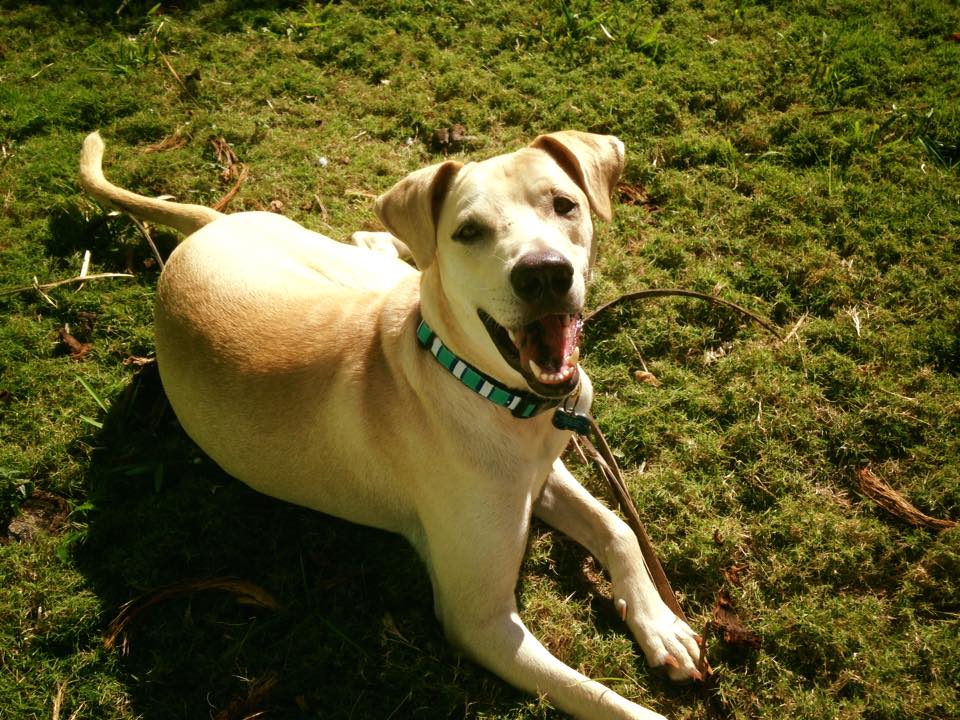
This dog was meant to be an outside dog, but I couldn’t handle his manic barking in the yard at all hours of the day and night. So, inside he came. His fear of other dogs included our neighbor’s dog, an innocent little Shitzu-Poodle mix. Each time he heard their front door open, he would attack the fence with full fury. There was nothing I could do but try and catch him by the collar and drag him into the house, choking and wailing. He began associating our neighbor’s loud Polaris with the “scary neighbor dog” and would flip out each time he heard a Polaris pass by the house. Eventually, he started barking at our neighbors too. What was once a friendly neighborly relationship began getting shaky, all because of a dog.
I diligently worked to train him. We adopted him when he was about 1 1/2 years old and he came with zero obedience training and no indoor etiquette. He lifted his leg to pee on the corner of the kitchen cabinets a few times before he figured out that was a no-no. He nosed through the garbage can once, until he witnessed mom’s unbridled reaction and he put an end to that. He tore up all of our couch pillows, with stuffing scattered in all directions. But in the grand scheme of things, all of that was short lived and in no time he was a well-behaved, pleasant indoor dog. He started to pick up on games such as “hide and seek” with his toys. He learned sit, stay, and even handshake in short time.
Despite his ability to learn, his issues with other dogs remained. I couldn’t teach him to pay attention to me and get him to focus when he saw a trigger. And his leash etiquette was disastrous. I consulted dog behaviorists and had Skype consultations. I read piles of books about dogs with behavioral issues and watched marathon Dog Whisperer episodes on Saturday mornings. But we didn’t seem to be getting anywhere. It got to a point where I couldn’t walk him on the beach without stressing out that we would see another dog and have an embarrassing episode. I was perpetually on-edge. I never knew how he would react in any given situation, so my anxiety would escalate, and in turn, so would his.
We moved to a remote island in the Exumas where there wasn’t another dog for miles. It was perfect. He had the whole island to explore and nothing to stress him out. But that was short lived. We moved to Nassau and his issues came back with full vengeance. The local street dogs are ready to lunge at us unsuspectingly, which escalates his fears. The neighbor’s dog barks fiercely at him through the chain link fence and you’d think he was being tortured, his wails audible from several blocks away. The entire neighborhood knows I have a dog named Jackson because of my constant yelling.
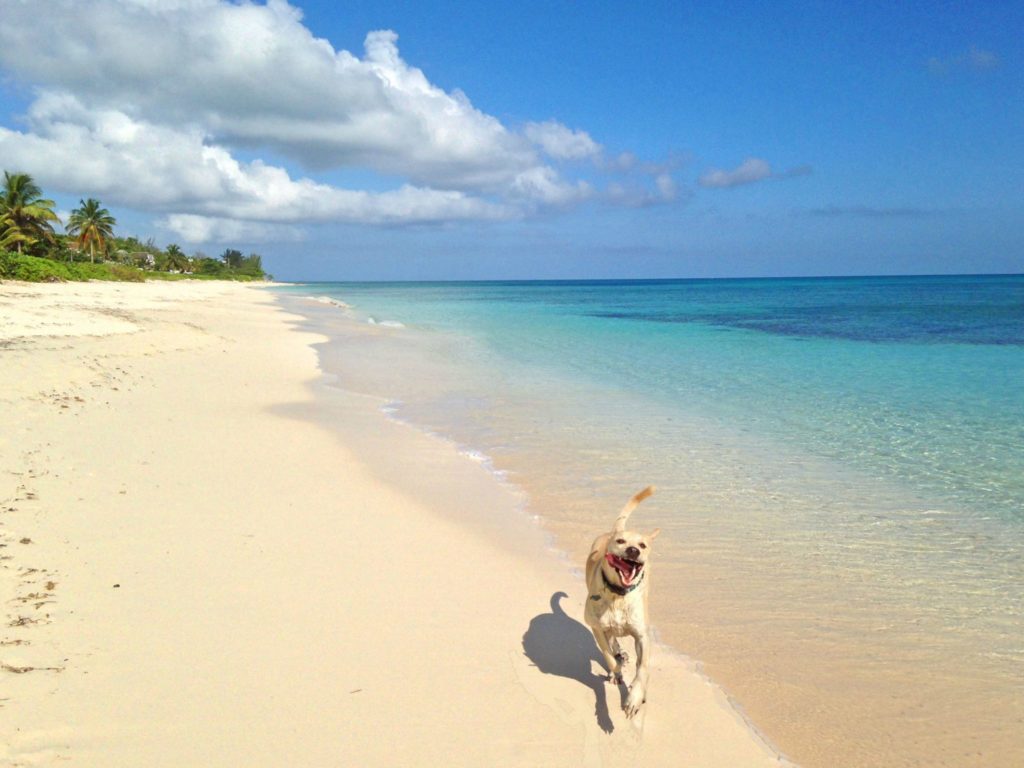
I’ve worked endless hours with him. I have even done numerous private doggie training sessions with a specialist here in Nassau that taught me how to control him on the leash when passing by other dogs. After three years as a member of our household, I’m finally able to get through weeks at a time without my blood pressure rising. His house manners are lovely, he’s cuddly and sweet, and a great guard dog.
Anyway, I’m not here to consult you on HOW to deal with a rescue island dog because there are plenty of resources out there, but I want to create awareness that some island dogs, particularly when you adopt them as adults, can be subject to behavioral issues. I may be stating the obvious, but I truly had no idea what I was in for when we decided to bring Jackson home. Often times these issues will subside with time by cultivating positive experiences, but in places such as The Bahamas where it’s not always easy to cultivate a positive environment, it can end up being a true labor of love.
The moral of the story is that before you adopt, please realistically consider the issues that a particular dog may come with and prepare yourself to handle them and adjust your life appropriately. The most horrible thing would be for an adopted dog to be sent back to the pound because their human can’t deal with him, or worse – for the dog to end up being treated with the same levels of disrespect that created his issues in the first place. All dogs are work. All dogs have the ability to be good dogs, some just take a little more time to get there. So if you already have a rescue dog in which you are dealing with a tumultuous relationship like mine was, please know that there’s hope.
It has been an amazing learning experience for me, and I know without a doubt that he has come into my life for a reason. I honestly don’t know if I have it in me to rescue another adult dog anytime soon (I did since rescue an island puppy, which has been a far easier experience), but I do know that this experience has changed my life and if I had to do it all over again, I wouldn’t change a thing.
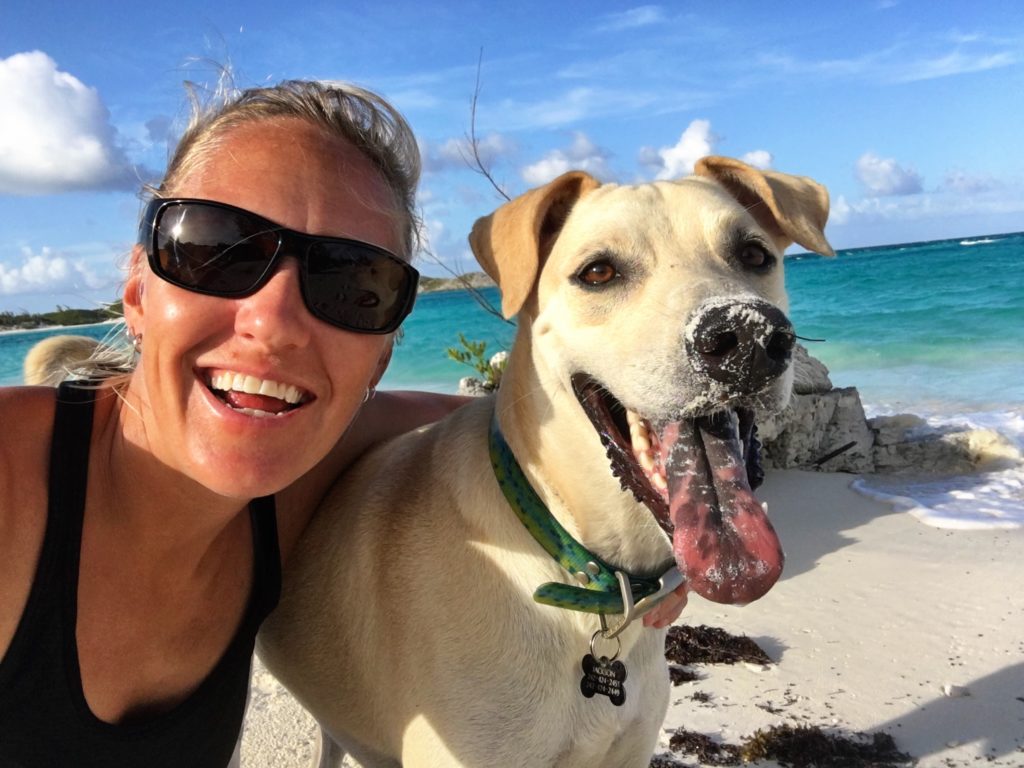
Have you rescued an island dog, whether it be an adult or a puppy? What advice would you give to those considering adopting a dog on your rock?
A version of this post was previously published on Out Island Life.

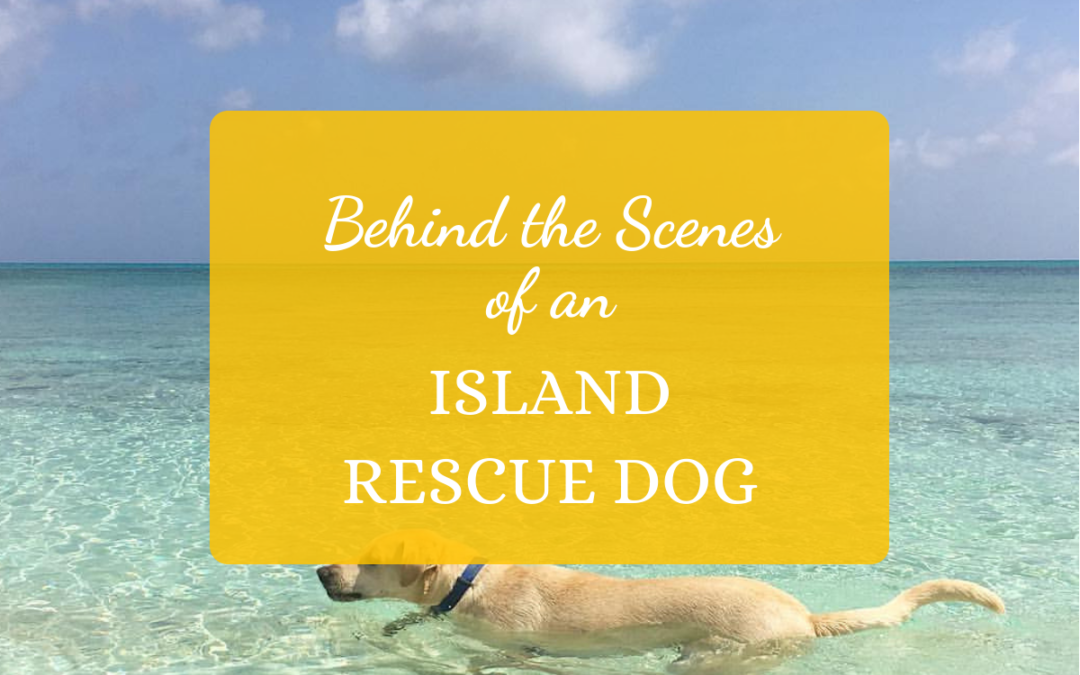
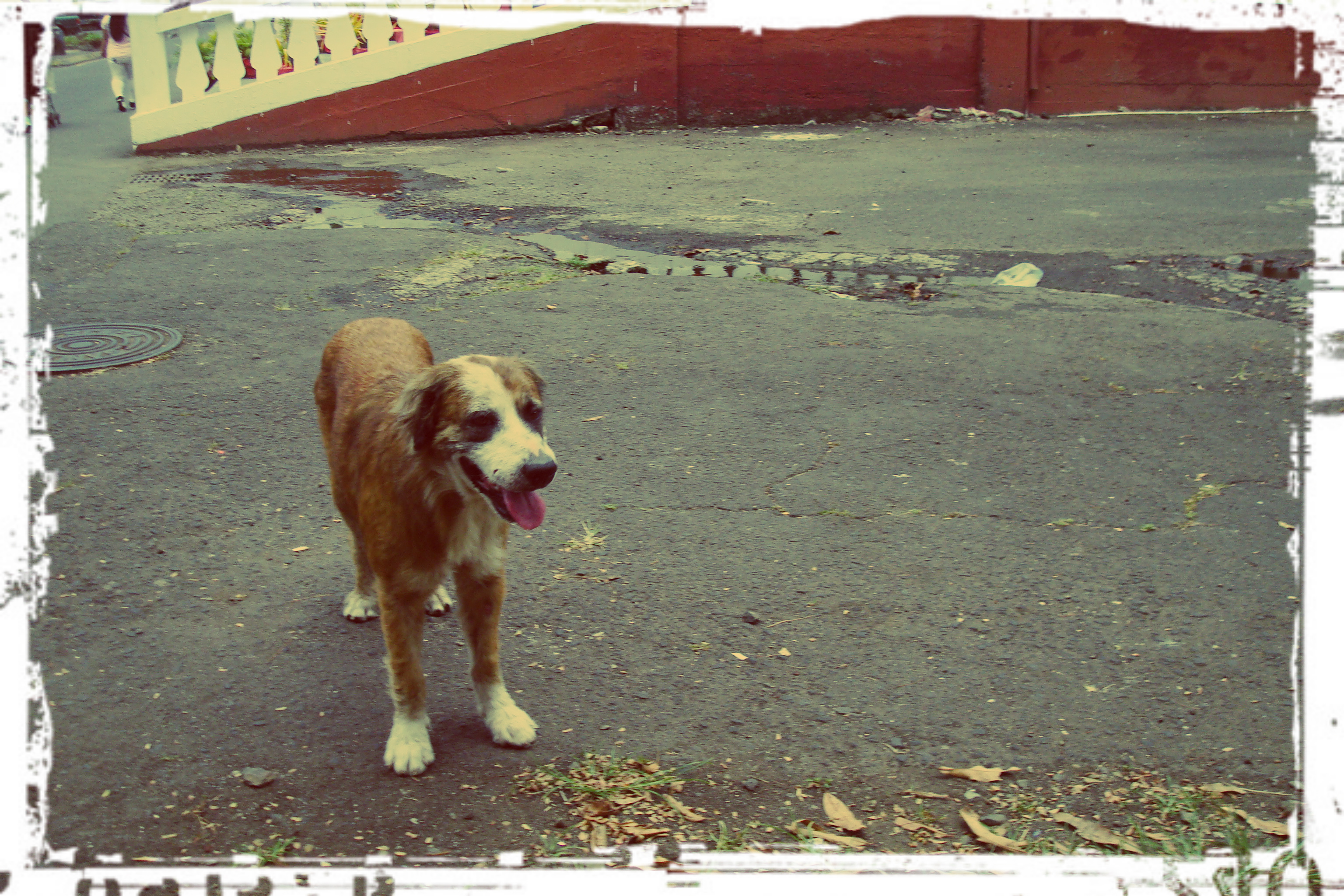
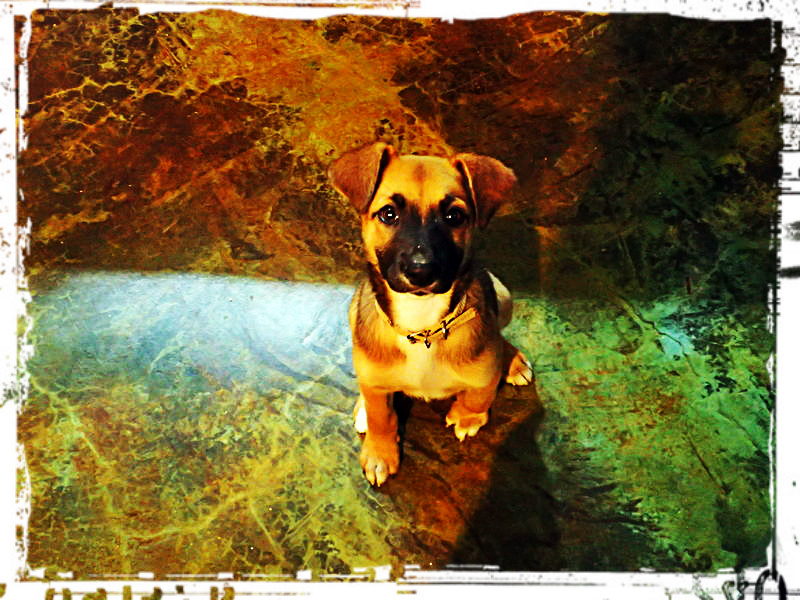
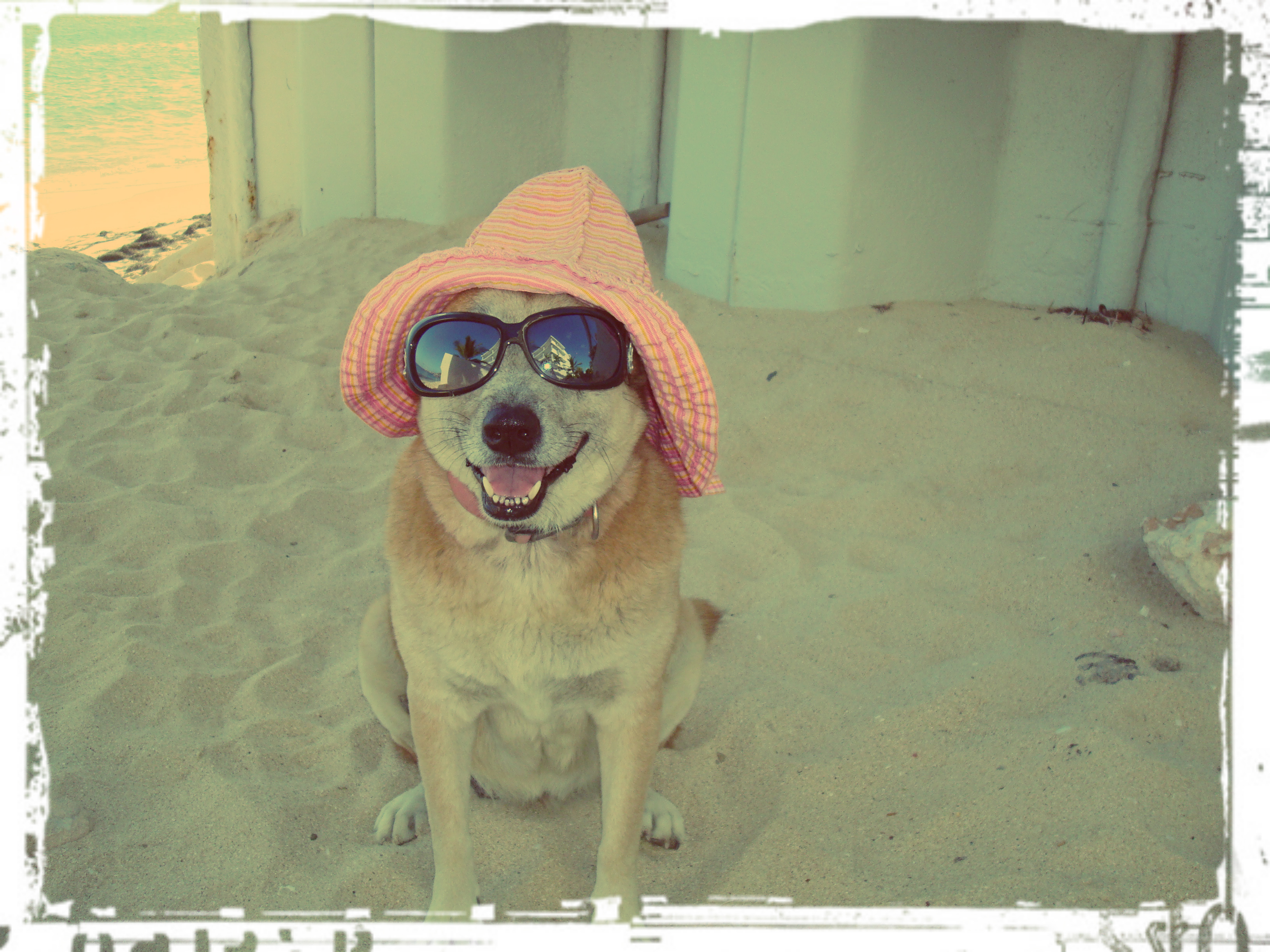
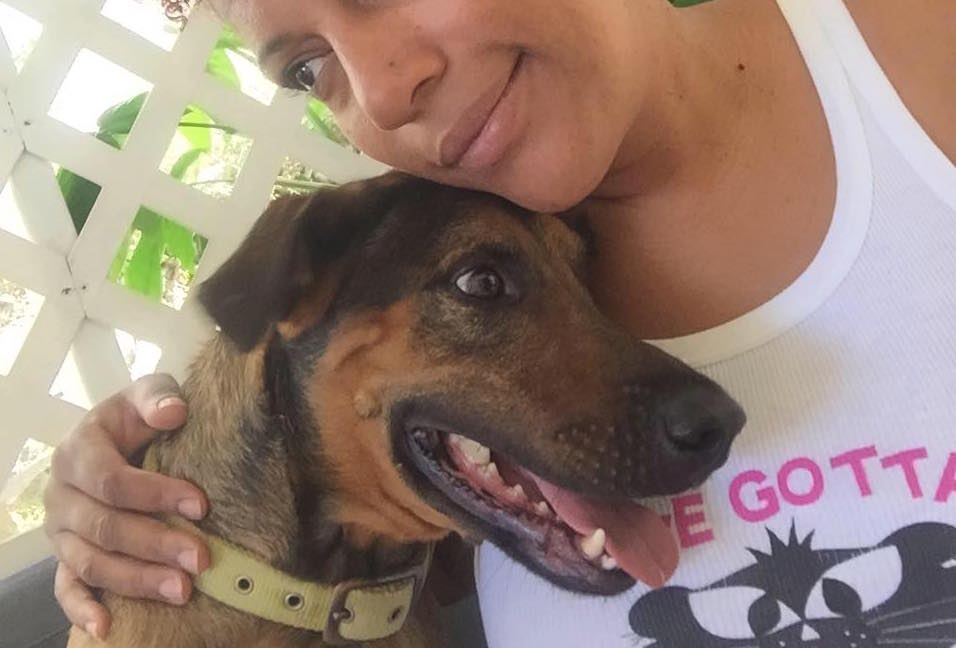









2 Comments